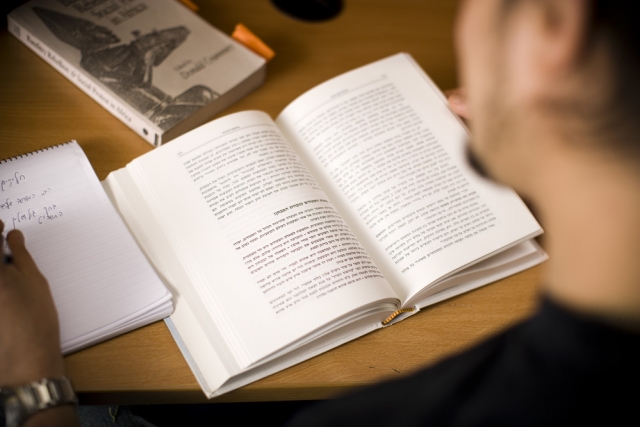
2014 - 2015 Awards
Last year’s competition was extremely impressive, with research into ELT themes such as CEFR statements, linguistic diversity, online gaming for English language learning, and covered a wide range of contexts including Belarus, Poland, Rwanda and Brazil, to name but a few.
The Judging Process
The judging process for the awards is a collaborative and thorough process. All dissertations are submitted from UK institutions, marked at distinction level.
Last year the dissertations went through two rounds of evaluation. In the first round the dissertations were assessed by British Council panels who ranked the dissertations according to the potential of the research to change the attitudes, practices or policies of individuals, classrooms or institutions. The best dissertations were then evaluated by academics from the participating institutions.
Winning dissertation:
Tim Goodier, King’s College London: Working with CEFR can-do statements
Special commendations:
Santi Budi Lestari, University of Warwick: Paraphrasing in high-scoring and low-scoring L2 integrated writing test task responses
Cathryn Tolon, University of Sussex: Teacher experiences during the shift in medium of instruction in Rwanda: voices from Kigali public schools
Sanghoon Mun, University of Bath: A study on teachers’ item weighting and the Rasch model: summative test items’ difficulty logits calibration using the Rasch model
Finalists
Each title links to the relevant dissertation paper:
- Oliver Beddall, Aston University: Investigating reflective practice in a training course for young learner teachers
- Hui Guo, Birkbeck, University of London: Analysing and evaluating current mobile applications for learning English speaking
- Anne Hardy, Canterbury Christ Church University: An investigation to establish the impact of synthetic phonics on teaching children with English as an additional language to read
- Natalia Blackman, University of Edinburgh: EFL teachers’ perceptions on the use of L1 in a primary and secondary classroom in Belarus
- Jennefer Brown, University of Exeter: Teachers’ perceptions and uses of online gaming and virtual worlds for English language learning
- Laura Sae Miyake Mark, University of Hull: Identity and interaction in second language acquisition: an investigation of Chinese learners’ use of ‘English’ names
- Miroslawa Mohite, London Metropolitan University: An investigation into the English language writing strategies used by Polish EFL secondary school learners
- Susannah Pearson, Norwich Institute for Language Education: Reflection and continued teacher development after the storm: Writing self-study materials for newly-qualified CELTA teachers
- Hamish Chalmers, Oxford Brookes University: Harnessing linguistic diversity in polylingual British-curriculum schools. Do L1 mediated home learning tasks improve learning outcomes for bilingual children? A randomised trial
- Richard Spiby, University of Reading: A comparison of the performance and utilization of reading strategies on tests of expeditious and careful reading
- Daniel Baines, Sheffield Hallam University: Reflection and improvement on the four-week intensive TEFL course
- Ghadah Saleh Aloqaili, University of Southampton: Learning vocabulary from subtitled videos: an investigation into the effectiveness of using subtitled videos for intentional vocabulary learning in Saudi Arabia
- Xiaoya Zhou, University of Stirling: Learner's strategy use to guess word meanings during interactive read-aloud: a case study
- Laís Borges, University College London: Pronunciation beliefs and other predictors of phonological performance: a study with Brazilian ESL learners